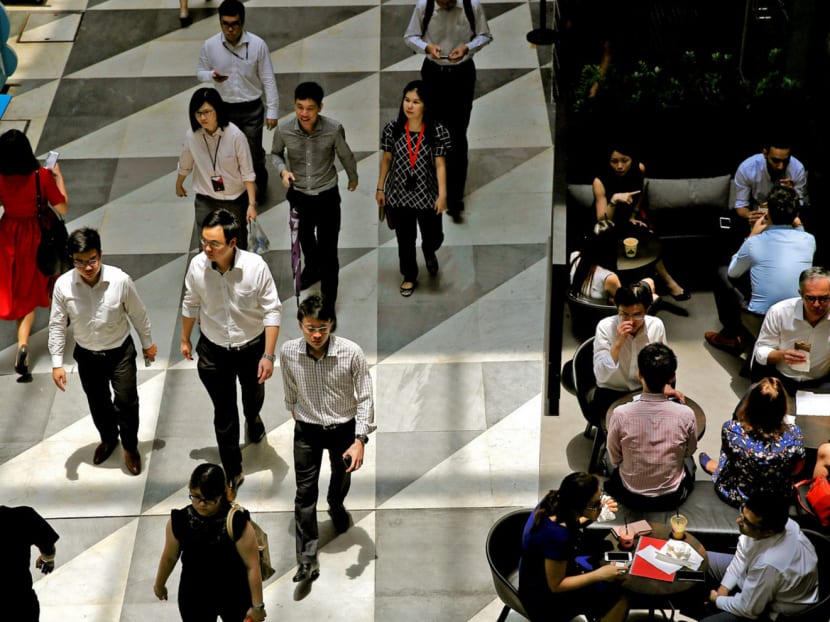Salaries won’t rise unless S’pore builds up its ‘innovation intensity’
SINGAPORE — The “golden decade” when Singaporeans enjoyed good wage increases year in, year out is over.

TODAY file photo
SINGAPORE — The “golden decade” when Singaporeans enjoyed good wage increases year in, year out is over.
For salaries to continue growing, it is not enough for the economy to simply generate a constant flow of ideas — it has to intensify the process and ensure more “indigenous innovation” is created year after year, starting with rejigging the education system.
These were the arguments put forth yesterday by some experts at a forum organised by the Economic Society of Singapore and the Singapore Management University.
During a panel discussion on the future of the Singapore economy, United Overseas Bank economist Francis Tan noted that wage aspirations have to be tempered amid slowing productivity gains. He said: “During Singapore’s early stages, wage aspirations were not as strong, you were paid at a lower wage rate than productivity and during that time ... it was okay. Then we reached the golden decade where the wage gains we had every year seems similar to the wage aspirations we had.” But, he noted: “We are now at a phase where we are seeing slower wage gains.”
Citing unrealistic wage expectations of young graduates and some mid-career workers, Mr Tan added: “(They) think that the situation is the same (as before) ... However, because of the slowing labour productivity, this situation is no longer there.” To address this challenge, innovation is needed to raise labour productivity, he said.
Concurring, fellow panellist Hoon Hian Teck, the associate dean of Singapore Management University’s School of Economics, added: “In order for you to deliver growing wages, it is not enough to have a constant flow of new ideas every year.”
Professor Hoon gave the hypothetical example of a country having a base of 1,000 ideas and churning out 20 ideas every year. If it continues to generate 20 ideas each year, innovation growth — as a proportion of an expanding base — will trend downwards.
He said: “Singapore has to confront itself with growing its innovation intensity and this can be done through changing the education system, which will be a way to create more innovators in the pipeline.” Whether Singapore can generate the productivity to support workers’ wage aspirations would boil down to “the ability to deliver new ideas at a compound rate”, he added.
Mr Tan pointed to Japan as an example for Singapore to emulate. “Japan is known for coming up with intense innovation to create quality goods that is incomparable elsewhere, so much so that the quality of its products is known for its ‘made in Japan’ symbol,” he said.
Delivering a keynote speech at the forum, Acting Education Minister (Schools) Ng Chee Meng reiterated the importance of inculcating an innovation culture through schools. Giving examples of how this is being done, Mr Ng cited how Geography teachers met consultancy experts and researchers from the Solar Energy Research Institute of Singapore and consultancy firm DHI Water & Environment to learn about viable alternative energy and water sources. Such learning journeys enable teachers to bring real-world case studies into their classrooms and help students to think critically and inventively, he said.
“We need to equip our young with skills for the future through a forward-looking curriculum focusing on strong values and building 21st century competencies,” he said. “Through these, we want our students to be better able to apply their learning to real-world contexts, be equipped with the knowledge and skills that will help them learn and innovate continually, so that they can be future-ready.”





